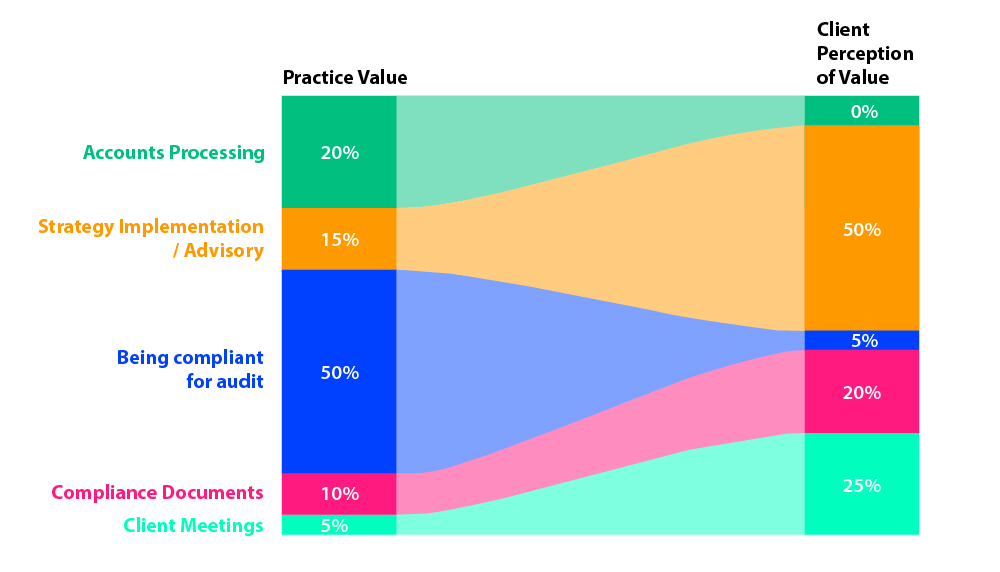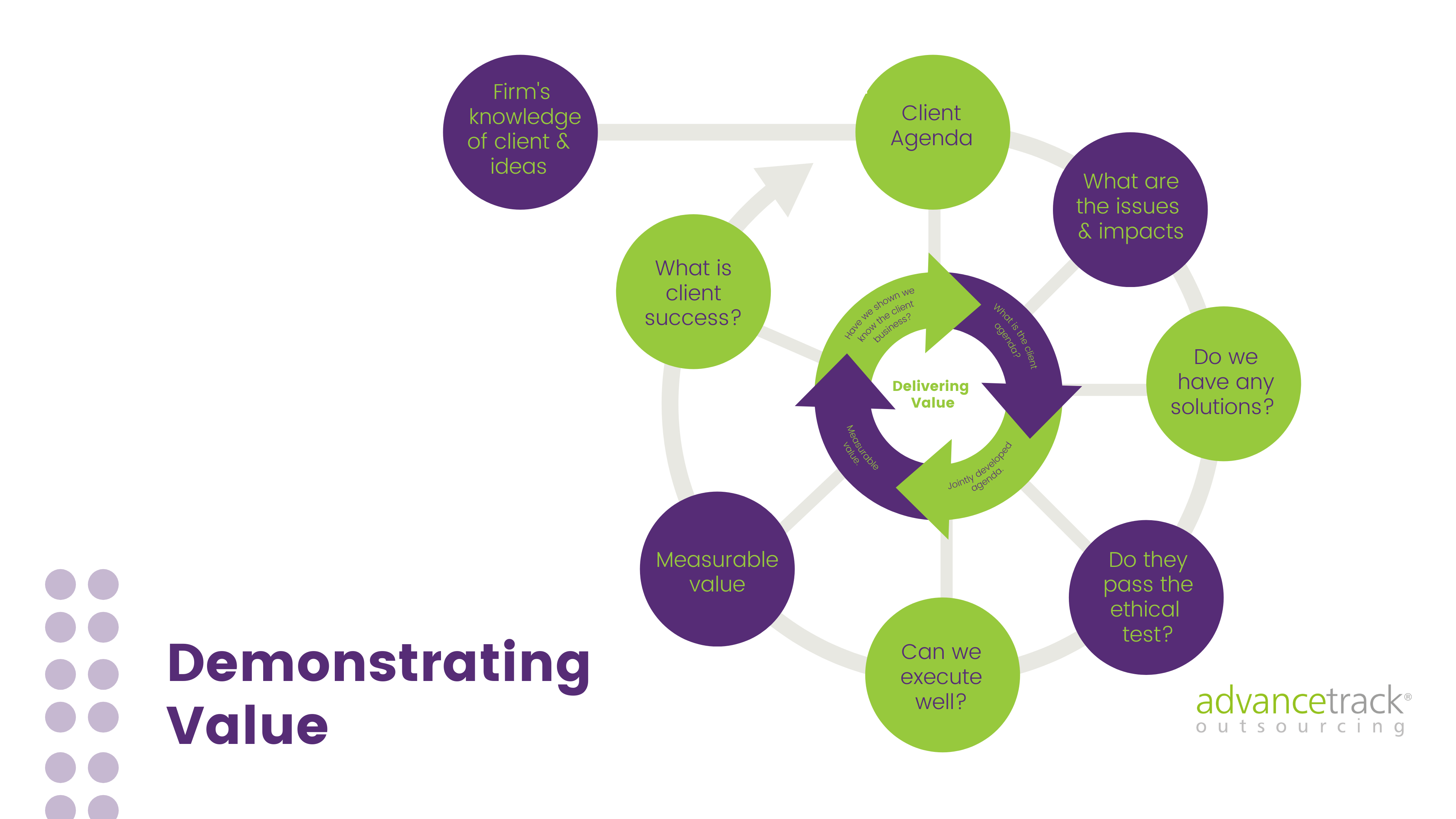
In the first of a series of articles, we look at why it is important to understand what the client wants. Only when we do that, can we truly help clients fulfil their personal and business ambitions.
Our profession has been going through change, but never more so than the last decade. It’s fair to say that the Pandemic has probably accelerated that change, with the move to the cloud being made even more relevant.
The story that underlies everything we do is that “Accountants Change Lives, but not by producing a set of accounts”.
As the son of entrepreneurs who benefited from an accountant who understood this over 40 years ago, I know that he made a difference to my future. Having worked on markets when I was 7/8 years old to help my parents, I went on to University and qualified as a Chartered Accountant and Chartered Tax Adviser, going on to work for 2 of the largest accountancy firms on the planet.
Why do I talk about this?
My parents’ ambitions were not necessarily for themselves, but the futures they could afford their children. I talk about this because we need to understand what is important to the client.
Below is the result of some research which shows that client meetings and strategic implementation and advisory is more valued than the compliance, yet professional firms spend a disproportionate amount of time delivering compliance.

Credit: Aaron Dunn
The key therefore is to reduce the cost of the compliance element, whilst allowing the accountant/bookkeeper to focus on the client relationship. We’ll talk more in the next feature about how you do this.
In this issue, let’s focus on the client needs. In order to serve the client, they need to deliver value and then demonstrate this.
Let’s discuss this a little further.

© Advancetrack
The most important part of the equation is to identify the client agenda. Understand what the client’s aims are. For some, that may be material things, such as a large house, car, boat etc. The reality for most business owners is something more emotional than the material things.
Financial independence may be just one goal for the business owner. For my parents, it was ensuring that the children got into higher education.
This was their agenda for the accountant to help guide them through. If we take the past 18 months, some of your clients just wanted to get through and retain their staff, home, business etc.
It’s therefore important that the firm identifies the client agenda, jointly with the client and then agree their role in helping the business owner deliver that. The accountant won’t stand behind the counter of the store or weld the metal in the workshop. Their role helps the business grow, prosper and deliver the goals necessary for the business owner to fulfil their goals.
The accountant needs to measure what that looks like. More importantly, has the accountant and their team shown they understand the business? The most valuable lesson any accountant learns is asking the business owner to show them around their business. It is usually their biggest passion (other than family).
If the accountant doesn’t know what drives the entrepreneur, they can’t help the entrepreneur. At some point, the relationship could break down if it is not nurtured.

© Advancetrack
So you’ve helped the entrepreneur share their goals.
How are you going to help them?
Have you identified the issues that will hinder their success. What impact will it have on the resources required of the entrepreneur and/or your firm? Every firm may think they can do the job, but at some point, the entrepreneur may outgrow the firm. That doesn’t always mean that you can’t serve them.
Sometimes it is about collaborating with others to help the client, for example, the world over, there are incentives to invest in Research and Development. The firm may not be able to do that, but there are specialists who work in this area. The firm retains the primary relationship and has presented a solution that serves the client and shown that you can help them deliver value by keeping their costs down or bring cash into the business.
I’ve seen in my own training days, a very successful entrepreneur floated their business on the stock market. The firm lost the audit to one of the large international firms then. The firm acted to support the entrepreneur and their family to manage the wealth they built up over the 30 or more years since, serving him throughout his business career. They maintained the trust and respect and just understood that the business was best served by a larger firm for part of their requirements. Retaining the trust of a prominent entrepreneur helped the firm to continue to demonstrate its value to the family and the wider business community.
We’ve included ethical values. This is important in considering whether you should retain the client. When faced with such dilemmas, the firm always needs to consider whether they want to retain the client or not. If the firm or its principals are not comfortable with what a client is asking them to do, what is the appropriate action for them to take?
When I used to run a small practice, I’ve been faced with situations where clients I considered to be friends asked me to do something I just felt uncomfortable with, or they acted against my values. At that point, you go back to the values you live and breathe as they’re instilled in you as you grow up. I think of the way I dealt with bullies in the playground or the workplace. Do you do the “Hard Right” or the “Easy Wrong”? I’ve always done the Hard Right and it’s what allows me to sleep at night.
If enough firms and principals rewarded partners for doing this, rather than penalising them because they “lost” fees, our profession would be stronger for it.
Can we execute the work?
How many times have you been on the wrong end of poor service? It’s often because the provider has decided that you’ll be their test customer/client. You’re paying for them to learn the service, which they’ll then be able to charge other clients for in the future. I’m pleased to see I’ve always been in firms that either had the expertise or stepped away from delivering it themselves.
Today, our industry is incredibly collaborative. Think of the WhatsApp or other groups you’re a part of. One message and you’ll find someone who can help your client. It doesn’t have to be you. You can manage it. Just make sure it’s right for the client.
If you know what your client’s goals are, you should be able to measure the success of the project. This is incredibly important in showing the value that your firm delivers in yours and your client’s journey. Without this, you’re not helping to keep the client or the firm focused on results.
It’s then time to re-evaluate what goals are important and the cycle goes through the same process again. I know I set both personal and business goals annually. It’s important that as an adviser you understand what your client’s goals are and if they’ve changed in any way. It will help you focus on making those happen. Remember, you’re trusted with their innermost fears and ambitions. Guard them safely and bring your team on that journey, so they understand what they do is so much more than reporting history.
We help firms deliver their goals. We’d love to talk to you about yours.
In the next instalment, we’ll continue the story of how to improve the customer experience.






